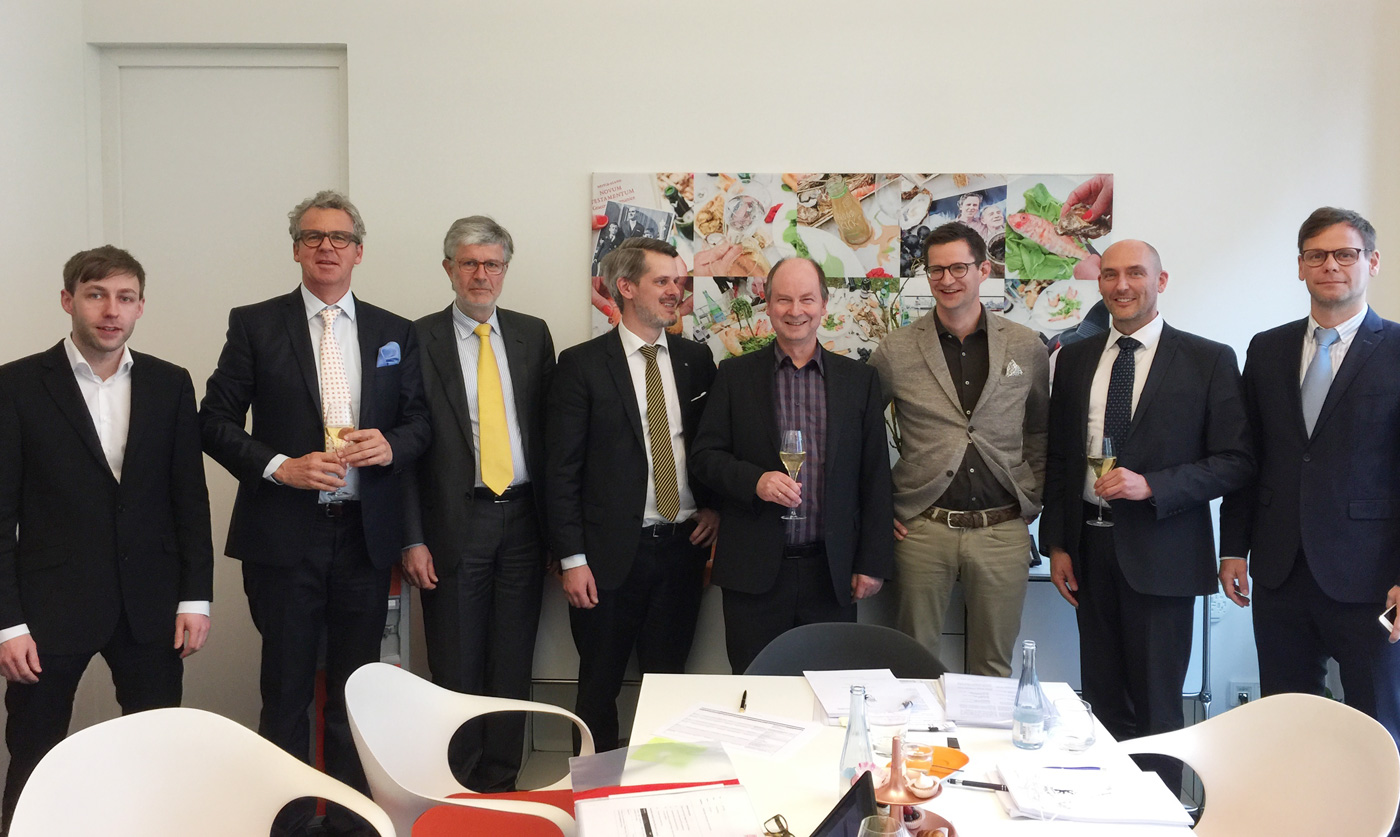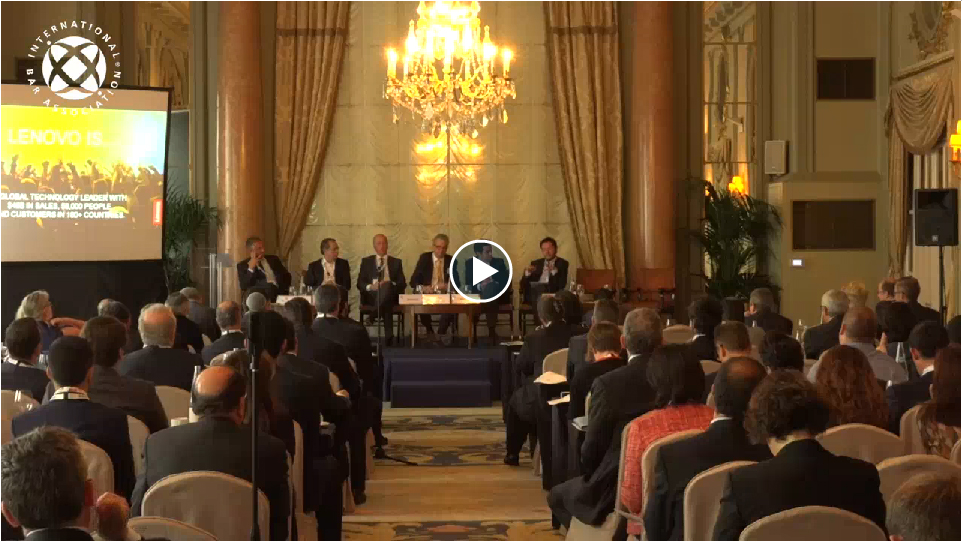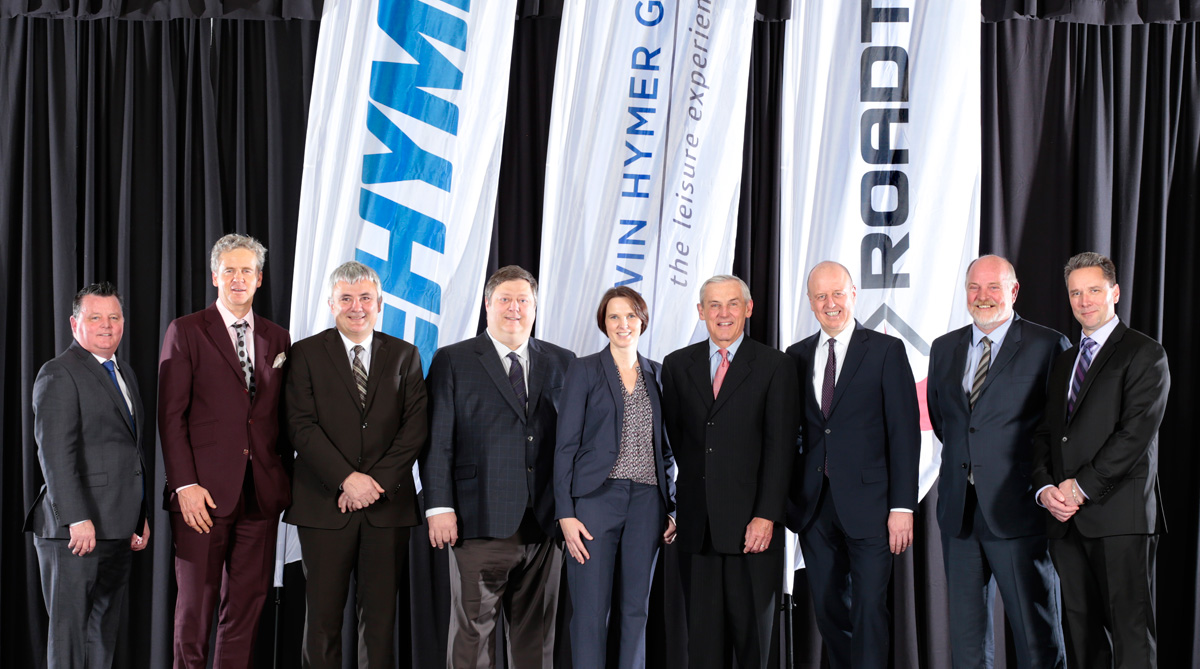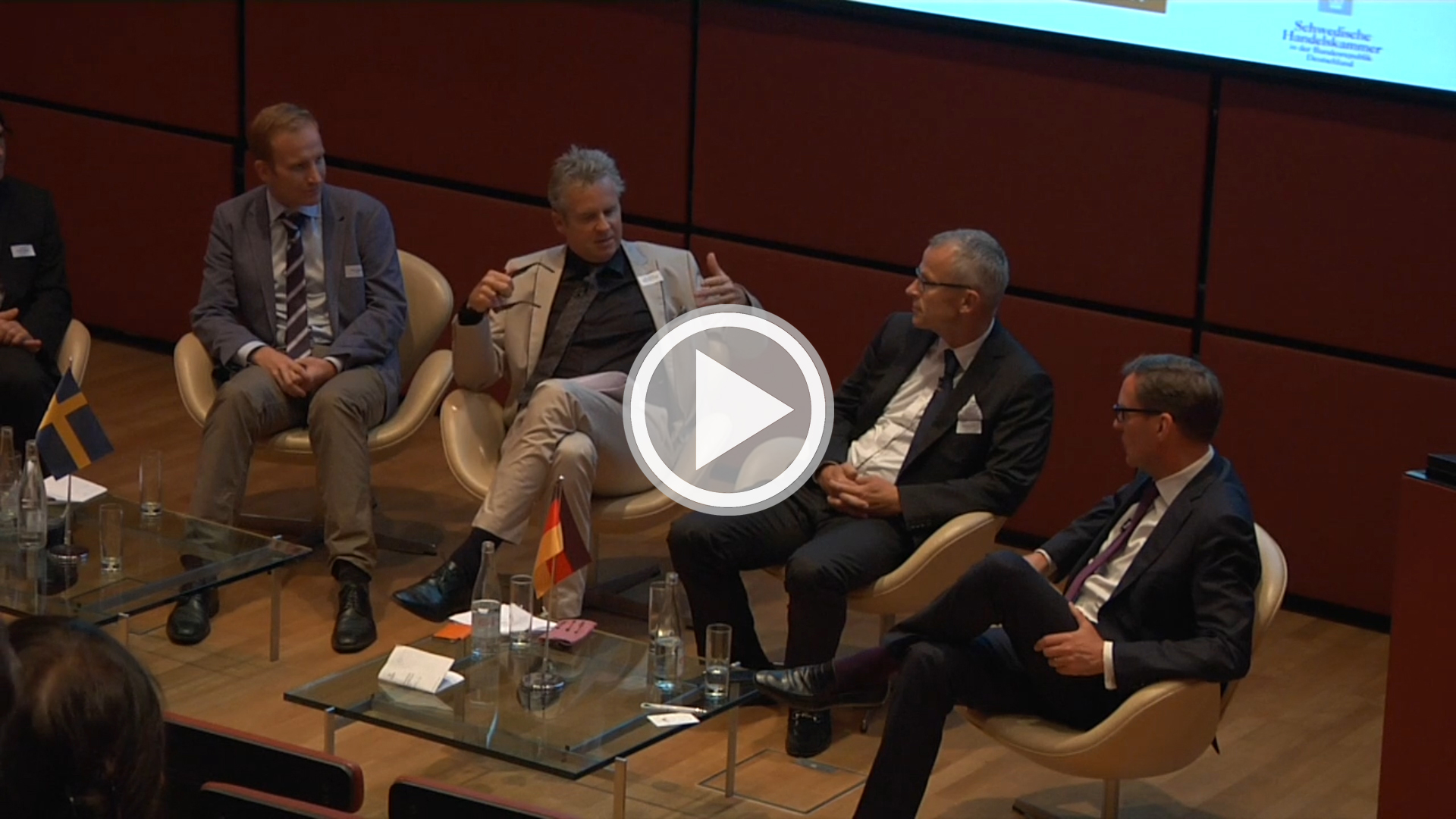Newsflash
tkslegal Berlin regularly releases a Nwsflash on hot topics and recent changes in the German legal field. Subjects usually covered are corporate, M&A and real estate law. The newsflashes are aimed at providing a practical overview to relevant legal situations, and have been prepared keeping international readers in mind, who don’t necessarily have prior knowledge of German law.
If you wish to subscribe to receive the newsflashes by email as soon as they are released, please enter you email address here and click submit.
2025-10 - Newsflash
Commercial Courts in Germany - A New opportunity also for the German Mittelstand
1. How it used to be
Traditionally, in Germany the official language of the court was German. This applied even if contracts were drafted in a foreign language and all parties were international. Just in a few locations, such as at two chambers of the regional court Hamburg, the oral hearing could be held in Englisch. However, the rest of the procedure was strictly conducted in German. This often required interpreters, an expensive and complicated process, depending on the terminology and original language.
Besides that, parties in international cases could opt for an arbitration tribunal in Englisch, such as the highly reputable Deutsche Institution für Schiedsgerichtbarkeit (DIS) in Bonn. While this might be a good solution in cases with a higher dispute amount, for smaller disagreements arbitration might not be a suitable solution.
For foreign investors, this language barrier may have acted as a deterrent. Many companies preferred to resolve their disputes outside of Germany, either through international arbitration or in foreign courts. For a long time, London's Commercial Court was often the preferred choice for European businesses to solve disagreements as it provided English-language judicial services, while still making judgments enforceable across the EU. Once this option became less reliable due to the foreseeable Brexit, other countries started establishing English speaking courts. In particular, the Netherlands Commercial Court (NCC) in Amsterdam and the International Chamber of Commerce in Paris attracted cross-border disputes, because they offered proceedings entirely in English.
Against this backdrop, German courts, although highly reputable and respected for their independence, were seen as less accessible in international business disputes and therefore played only a limited role on the global litigation map. To some extent, this even deterred foreign investor, especially those interested in the German Mittelstand (small and medium-sized enterprises), as there was always the risk of having to deal with highly complex court proceedings in German.
2. What is new
This situation changed with the Justizstandort-Stärkungsgesetz (Judiciary location Strengthening Act), which entered into force on 1st of April 2025. For the first time, in certain German courts in complex international commercial disputes the court language can be chosen to be English. This means that not only the oral hearing can be held in English, but the entire court proceedings.
The reform allows German states (Bundesländer) to establish two levels of specialized courts. For regional courts states are permitted to set up multiple Commercial Chambers. The court's jurisdiction can arise by law or party agreement. If at least one party applies for proceedings in English and the other does not object, the case can be conducted entirely in English. The appeal process generally remains unchanged.
Additionally, one Commercial Court can be established per state at higher regional courts. These courts are competent for disputes valued from EUR 500.000, if the parties have expressly or implicitly agreed in advance, or if the claimant requests proceedings in English and the defendant does not object. Appeals are possible to the Federal Court of Justice (Bundesgerichtshof/BGH), though the English procedural language must be reapplied.
As of now, commercial courts have thus been established in Baden-Württemberg, Berlin, Bremen, Hamburg, and North Rhine-Westphalia, since June in Bavaria and Hesse and just recently in Lower Saxony since September. Saxony is planning to follow later in 2025. Many of these states also offer commercial chambers, though appeal routes vary. For example, appeals against decisions of the Commercial Chamber of the Regional Court of Bielefeld go to the regular higher regional court Hamm and not to the Commercial Court in Düsseldorf.
Alongside the introduction of English-language proceedings, the reform also strengthens the protection of business secrets in those courts, simplifies procedures and provides for highly specialized judges.
3. What does it mean for the future
The establishment of English-language commercial chambers sends a clear signal to international business: Germany is opening its judiciary to global commerce. For companies with international ties, particularly to the German Mittelstand, this is highly relevant, as foreign partners and investors will find it easier to litigate in Germany, without the cost, inconvenience and uncertainty that come with translations. But also for non-European investors seeking to establish ties elsewhere in the EU, deciding for the jurisdiction to be Germany could be beneficial when it comes to the reliable judicial system.
This move strengthens Germany's position as a venue for dispute resolution and could reduce the outflow of cases to foreign jurisdictions or arbitration centres. While the latter is a great solution for high-value cases with the need for three judges, for smaller disputes this option might be not suitable. Litigation in these new commercial chambers could be more affordable in cases with a lower dispute amount, while still offering the neutrality, enforceability, and quality of German justice.
For international investors, the timing of this additional German judicial service is particularly significant, as a large share of German Mittelstand companies face generational change. Many founders of the post-war generation are stepping down, while successors are not always willing or able to continue. This creates both challenges and investment opportunities. Foreign strategics and financial investors looking to engage in M&A, joint ventures, or long-term partnerships with Mittelstand companies, can now benefit from a stronger, more internationally oriented legal infrastructure in Germany.
In short: with its large and innovative Mittelstand, Germany is not only a key destination for investment, but now also offers a modernized and internationally accessible court system. This combination of economic opportunity and judicial reform strengthens Germany's position as a leading hub for international business in Europe.
tkslegal Berlin is a German boutique law firm and notarial office, with a focus on corporate/M&A and real estate transactions. Please feel free to contact us with any questions or comments.
1. How it used to be
For decades, the German Mittelstand (medium-sized businesses) has been the backbone of our economy. Representing more than 99 percent of all businesses with fewer than 250 employees and with over 90 percent of all businesses being family owned, it generates about one third of Germany’s total GDP and over half of its total net value added. Many Mittelstand companies, often highly specialized in niche markets, have become internationally known as “hidden champions.”
This success was built on stable foundations. On the one side there was a steady domestic environment with a secure political leadership and consensus-oriented economic policy in Germany supporting long-term business planning. On the other hand, a rule-based international order, reliable transatlantic trade relations and predictable geopolitical alignments supported an export-driven growth model. Many Mittelstand firms began their global expansion with just one strong product, gradually building global supply chains and long-term relationships.
Succession planning in this environment was especially in family-owned businesses a largely internal affair. Ownership and leadership stayed within trusted circles, and the transfer of responsibility to the next generation emphasized continuity, family tradition, responsibility and accountability. Succession in that context has never been easy and in recent years become an even greater challenge. A significant number of business owners of the post WWII generation have reached retirement age, and in many cases, family members as successors are either unwilling or simply unable. While this development poses risks for the German economy and society as a whole, it also opens new opportunities especially for international strategic and financial investors looking to enter or expand into the German-speaking market.
2. What is new
The global upheavals at present are also hitting the German Mittelstand. The rule-based order that used to ensure predictability and openness in trade is giving way to power politics and protectionism leading to unpredictability. Tariffs are used as political and economical weapons, supply chains are under pressure and economic interdependence is no longer seen as a guarantee for peace and stability. Examples of this are the U.S.-"Buy American" agenda and an ever dominant China.
Germany, too, is undergoing a transformation. The new Merz government is navigating to overcome an economic crisis and lower energy costs and now has the goal to live up once again to a greater leadership role within Europe, while the U.S. becomes more inward-looking.
Meanwhile, up to 250,000 businesses in industry, trade and services are facing a potential shutdown in the coming five years, if no suitable successors can be found. While the generation of founders after the WWII is nearing retirement, the next generation often is not able or willing to take over the business. Mittelstand companies, especially in sectors like machinery, chemicals, and automotive supply, are particularly exposed to this. Even before the current trade conflicts, the rise of autocrats around the globe has created a lack of legal certainty in such economic regions and made lives for expatriate managers and their families there more difficult. Which leaves Mittelstand companies with the need for some kind of a new resilience.
There are some encouraging signals in the Merz coalition agreement, such as the depreciation for investments in equipment and machinery of up to 30 percent for 2025, 2026 and 2027. Overall however, tax relief for Mittelstand companies remains limited. The planned cuts for income taxes often do not benefit the Mittelstand legal entities and the corporate income tax is not meant to be lowered before 2028 and then only by small one percent steps over a period of five years. In addition, there are no planned mechanisms to deal with rising non-wage labour costs.
With regards to succession planning, there are only some vaguely worded planned regulations. For example, the new government intends to support and further develop marketplace platforms for the succession of businesses like “nexxt change” (organized in co-operation with the Ministry of Economics and the Kreditanstalt für Wiederaufbau).
3. What does it mean for the future
All this in mind, succession planning can no longer be seen purely as a matter for the family and of employee continuity. Future leadership must incorporate geopolitical risk and economic turmoil into their long-term strategies. Companies will increasingly need to diversify their markets and supplier networks to reduce dependency on single countries or regions and avoid concentration risk.
This transformation also affects corporate governance. While many family-owned businesses already employ outside managers (beyond the daughter- and son-in-law solution), the shift toward external leadership is expected to continue. This applies especially, when there is a lack of experience, willingness, or qualifications to take over. For the new generation the taking of responsibility in a volatile world – in addition to dealing with patriarch founding parents - can be daunting. A stronger role for outside management is therefore submitted to be both of practical and strategic value. Carefully drafted family charters can in that context help to balance responsibilities and rewards of the family with the outside management (hired exclusively on the basis of qualification and expertise) and also between the family members themselves. All to avoid dispute and resentment between the different parts and stakeholders.
In the future, the success to create “hidden champions” might depend less on discretion and more on the ability to adapt and build strategic autonomy, while exploring new markets and alliances. With this the German Mittelstand with its strong export market orientation is set to continue its ecosystem to sustain existing and further the creation of new “hidden champions”. As always, the adaptation of the German Mittelstand in such times of turmoil also creates opportunities for international investors. The ever growing number of unresolved succession cases, combined with the need for capital, innovation, and global know-how, is said to create a unique window of possibility. In particular for strategic investors with expertise in the field of the Mittelstand business, that focus on sustainable long-term growths, rather than disruptive and short-term profit maximization strategies, not uncommon of many private equity firms. Foreign strategic investors with long-term visions similar to the family history and local sensitivity are submitted to find fertile ground in Germany’s Mittelstand also in such times of global uncertainty and reorientation.
tkslegal Berlin is a German boutique law firm and notarial office, with a focus on corporate/M&A and real estate transactions. Please feel free to contact us with any questions or comments.
2024-01 - Newsflash
German Mittelstand and the Green Revolution: Adapting to New Sustainability Standards
How it used to be
Sustainability has become a key topic in society as well as in business in the past few years due to the impending danger of climate change. For that reason, it is of upmost importance that companies practice a sustainable way of conducting themselves. For long it has not been compulsory to document any processes of business procedures relating to sustainability. Therefore, there was not much transparency in for example the sustainability performance of supply chains. Which led to a bigger probability of Greenwashing. Adding to that, fossil fuels could be bought by a cheap price, so companies did not have to watch their co2 emissions. Generally, sustainability just was not much of a priority. With the uprising discussions about climate change, however, the legislator has meanwhile noticed this problem. And has set up new important rules to ensure sustainability within businesses. Which have to be seen also in light of the recent judgement by the Berlin-Brandenburg Higher Administrative Court against the Federal Government to adopt additional immediate measures to reduce greenhouse gases from traffic and buildings.
What is new
The four most important legislative developments as to sustainability performance impacting also the German Mittelstand are considered to be the Corporate Sustainability Reporting (CSR) – Berichtspflicht (Corporate Sustainability Reporting Richtlinien and Corporate Sustainability Reporting Directive), the Lieferkettensorgfaltsgesetz (LKSG), EU-Taxonomieverodnung and co2 pricing through the Brennstoffemissionshandelsgesetz (BEHG). Even though all of these rules are directed against bigger companies, they will also play an important role in the development of Mittelstand businesses. Consequently, it will be necessary for small and medium-sized enterprises (SME) to understand these new rules, as they will influence their growth and may also be directly applicable to them soon.
CSR Berichtspflicht
Large corporations are obligated to measure their sustainability performance. Large companies according to this norm are considered to have more than 500 employees and a sales volume of more than 40 million euros or total assets worth over 20 million euros. Also, banks, insurance companies and funds, listed and non-listed, fall into this category. However, small and medium sized companies are affected by this indirectly, because as a supplier they have to fulfill requirements of the large companies. Besides, as of 1 January 2026, capital market orientated SME will have to meet these requirements.
Lieferkettensorgfaltspflichtengesetz LKSG
This law states clear requirements for due diligence obligations and supply chain management. Covered are Germany based companies with more than 3.000 employees. But as an essential part of the supply chain, SME will also have to comply to the rules. Otherwise, the SME will be economically jeopardized, because larger companies, as well as the various German public entities, will not demand their services anymore. It can be expected that the requirements to fulfill this norm will be lowered over time. From 2024 onwards companies with over 1000 employees will already fall under the rules of the new law.
EU-Taxonomieverordnung
This norm has set up certain requirements which need to be fulfilled for a company to market their products or services as sustainable. For example, a product or service must support a declared environmental goal without harming any other environmental goal. The EU-Taxonomieverordnung has been in force since 2022 and it has constantly be expanded, for example by adding other environmental targets. A company can provide a non-financial statement, in which it describes the impact its product or services have on environmental and social issues. This is supposed to prevent greenwashing. Affected by this are banks and capital market orientated companies with more than 500 employees. Smaller companies may also be affected, because the obtaining of a loan today is generally linked to the company`s sustainability performance. For a property to be considered taxonomy-compliant, a primary energy requirement of at least 10 per cent below the national values of the nearly zero-energy building standard is required. The values of the Building Energy Act, which came into force on 1 November 2020, are applicable to this end.
co2 Pricing through Brennstoffemissionhandelsgesetz (BEHG)
The BEHG taxes co2 emissions through fossil fuels with 35 euros per ton. This affects particularly companies in the sectors of transport, energy efficiency and energy procurement. In 2025 the price will go up to 55 euros per ton. This results in an increase in federal tax. Climate-friendly behavior is supported by subsidies.
What does it mean for the future
The different rules and procedures as described will create the basis of the practice of sustainability for larger and smaller businesses in Germany. Though directed at present towards large enterprises only, it can be expected that over time the prerequisites will be lowered to also affect SME. Besides, by being an integral part of for example the supply chains themselves, the German Mittelstand is already influenced by the new norms. Whilst these new rules have been described as annoying obligations by some lobby organizations, they are in reality a crucial step towards a greener way of living for all of us. They should therefore be welcomed, as certain countries including Germany are moving forward with the creation of so-called coalitions of the willing also on the environmental sustainability front. As a key instrument to combat climate change, and to present a planet intact also for the next generations.
tkslegal Berlin is a German boutique law firm and notarial office, with a focus on corporate/M&A and real estate transactions. Please feel free to contact us with any questions or comments.
How it used to be
Like in most European liberal democracies, there has traditionally been little restriction as to foreign direct investment (FDI) in Germany. This did not change even after the illegal invasion of the Crimea by the Putin regime in 2014 and the levelling of the Belt and Road Initiative by Xi Jinping`s China.
The control of FDI within the EU was left to the individual member states, until the so-called Screening Regulation (EU Regulation 2019/452 of 19 March 2019) came into force to enhance investment control in member states. In Germany, the new regulations tightened the standard of scrutiny for investment audits under the Foreign Trade and Payments Act (Außenwirtschaftsgesetz, AWG).
The new of the AWG Regulation (Section 55a AWV) introduced in 2021 lists 27 sectors that fall within the scope of cross-sectoral audit. This includes critical infrastructure, telecommunications, artificial intelligence and since the pandemic also medical products.
The factors that trigger investment control have been broadened to include certain thresholds of voting rights in companies (10 to 25 percent for cross-sectoral control and at least 10 percent for sector specific control), as well as acquisitions with atypical control and asset deals structures.
With still historically low interest rates, 2021 has also in Germany seen a record M&A year, with investors carrying out more and especially larger transactions.
What is new
For Baby Boomers and generation Z alike, geopolitical developments have hardly been perceived as risk factors. This changed abruptly with the Russian invasion of Ukraine following the pandemic in February 2022; and unprecedented inflation as well as rising interest rates to the global economy and investors alike.
The Mergers & Acquisition market in Germany in 2022 has reflected this uncertainty: In total, a transaction volume of EURO 107 billion has been reported, corresponding to a decline of one third to the previous year. While the number of transactions remained stable with 169 deals with a value of at least EURO 10 million. This missing of large transactions seems to continue throughout 2023, with the acquisition of the Viessmann pump heat business by US Global Carrier for EURO 12 billion as the largest transaction year to date.
The EU in late December adopted Regulation 2022/2560 on foreign subsidies distorting the internal market. The regulation has set new rules for foreign companies in M&A and public tenders in Europe. It empowers the Commission to investigate financial contributions received by EU companies from non-EU countries/entities and to counter any distortions of competition that may arise as a result.
The application of the new FDI rules by the German Government as to the strategic interest of Chinese state shipping company Cosco in the Hamburg container terminal caused considerable debate in spring 2023. On 10 May the acquisition was finally approved for 24,9 percent of the shares (just below a 25 percent blocking minority), instead of the 35 percent originally sought by Cosco. The Federal Office for Information Security (BSI) had earlier classified the terminal as critical infrastructure requiring special protection. Critics still believe that the Chinese state will gain too much influence over the port and point to earlier Chinese takeovers of German Mittelstand "hidden champions" as early as 2016, when KUKA Robotics in Augsburg was acquired by Chinese Midea. The City of Hamburg meanwhile is progressing with the envisaged sale of 49,9 percent of the shares of the overall Hamburg Harbor Company (HHLA) to Geneva based Mediterranean Shipping Company (MSC), in order to improve its standing and competitiveness against Rotterdam and Antwerp. Where no issues of FDI are at stake.
What does it mean for the future
The proclamation of a "relationship of trust" as thought by then chancellor Angela Merkel only three years ago, today feels like from a different time. It has been replaced by a long awaited strategic paper on how to handle ties with China announced by the Foreign Ministry on 13 June 2023. While China shall remain a partner, the new doctrine underlines its role both as a competitor and a systemic rival for Germany. The goal is not to decouple from China, but to avoid critical dependencies and thus minimize risks in the future. Also, a Communication on Economic Security Strategy was published in conjunction.
The EU Commission in the meantime has announced that it will examine the introduction of instruments to control outbound strategic foreign investments. And the US and its democratic allies in the West and the rest of the world on the recent G20 Summit finally announced their own huge investment scheme to improve railway and shipping links between Europe, the Middle Eat and India. While Italia as the only EU country, that had earlier joined the belt and road initiative of the Xi Jinping regime, formally decided to opt out.
In today`s world, where larger and smaller autocrats are aiming to line up, it is of paramount importance that the rule of law is defended not only in our Western democracies but anywhere on this planet. In the M&A context that means, investors and their advisers have in addition to merger control also to consider and apply the increased FDA rules and procedures. For Germany this applies in particular to the engineer and technology driven Mittelstand companies with their often not sufficient succession planning, which will continue to make up for the core of the future M&A transaction market here. The cork footbed manufacturer Birkenstock may be seen as an example for the potential of such companies. With rotes dating back to 1774, the family departed in 2021 while the company was last week announced to enter the New York exchange for an estimated value in the range of EURO 8 billion.
tkslegal Berlin is a German boutique law firm and notarial office, with a focus on corporate/M&A and real estate transactions. Please feel free to contact us with any questions or comments.
How it used to be
Whereas courts and attorneys in Germany are somehow behind their European colleagues, recent developments put German notaries in the pool position to elevate the profession to the next digital level. Traditionally, clients had to be physically present at the notary office for the formation of companies, transfer of shares and real estate, as well as further notarial services. Only small steps towards digitalization had been achieved in the past. Notably the implementation of a personalized encrypted online communication within the profession for all Rechtsanwälte and Notare (organized by the Federal Chamber of Notaries also for all attorneys, after the project of the Bundesrechtsanwaltskammer had consistently failed). Also, since January 2022 all deeds in a notarial district have to be filed with a central electronic archive. With the general acceptance of video conferencing and the like during the pandemic, the German legislator eventually decided to make better use of the tools and possibilities provided by the EU Digitalization Directive (2019/1151/EU).
What is new
As a response and since 1 August 2022 , it is now possible to establish a GmbH and its little sister, the UG (Unternehmergesellschaft), online for cash contributions. The shareholder resolutions passed in the course of the formation, the appointment of the first managing director(s), and the application to the commercial register can be certified online. So it is no longer necessary for founders to appear at the notary office in person. Which is a great advantage for corporate and start-up regions such as Berlin and Munich alike. The normally reserved Federal Chamber of Notaries enthusiastically commented the start of the notarial online procedure as a “milestone in digitalization”.
In review, two pieces of legislation have enabled the online progress: The German Implementation Act for the Digitalization Directive from 13 August 2021 (DiRUG), and the Amendment Act (DiREG) wich will be coming into force later this year. While the DiRUG has provided for the basis of the online notarization procedure, the DiREG will extend the scope to in kind contributions and to others company forms such as the larger Aktiengesellschaften.
How does it work
Online notarization is only permitted via an online platform using the video conferencing system of the Bundesnotarkammer (which works similar to teams or zoom) and a free notary app on the founder`s smartphone. The data is encrypted and stored on Germany based servers, so that the highest data protection and security requirements are met. All necessary legal declarations of the parties are notarized via the video communication system.
The parties involved (not any longer the “persons appearing” as worded in traditional notarial deeds) must identify themselves electronically with an EU identity document with an eID function. In a second step, the photo on the ID is read electronically. The notary then compares the photograph with the video image of the persons involved, advises the parties/founders as before on the drafted founding ducumentation and checks their legal capacity or powers of representation. Finally, the contract is signed with a qualified electronic signature, as provided for in the German Notarization Act.
What does it mean for the future
The notarial online procedure to establish a GmbH formation in its first few months of existence has already proven popular amongst founders and corporations alike, particularly in the Germany`s start-up hubs Berlin and Munich, and equally amongst foreign shareholders.
With the growing acceptance for video communication, the online procedure of founding companies saves time, effort, costs and facilitates the flexible formation of start-ups and companies. Foundation documents can now be transmitted more conveniently than before, in a timely manner via email, which enables courts and registers to make entries faster, more efficiently, but just as legally secure as before.
As a result, it can be expected that the German legislator will extend online formations to further company forms (even beyond the DiREG scope). And also to countries forming the European Economic Areas, such as Switzerland and Norway. To provide for general online certifications (Fernbeglaubigungen) will as a further step be particularly welcomed by international corporates as to their participations in Germany (the top management of which rarely follows German corporate law lines). Eventually even company mergers and real estate transactions may be concluded online, as German notaries continue to elevate the legal profession to the next level of digitalization.
tkslegal Berlin is a German boutique law firm and notarial office, with a focus on corporate/M&A and real estate transactions. Please feel free to contact us with any questions or comments.
News and Press
Latest press releases, news, and Recent Transactions - tkslegal Berlin
Thomas speaks to US based Law.com International on big law firms` prospects in and outbound from the Bavarian capital
This interactive map will provide you with an insight into how the Covid-19 pandemic is affecting other IBA members across the world. Hear from members in different jurisdictions outlining their personal experiences and legal issues of concern to them at this time.
Thomas has talked to Polly Botsford about his view on the two latest German court decisions about legal tech regarding smart-law and wenigermiete.de. As since 2011 more and more start-ups try to enter the legal market a core question arises: to what extent should only a legal professional be able to provide certain services. If you want to find out more about Thomas’ view on that topic.
On in late spring 2019 Thomas kindly hosted a delegation of Irish lawyers including the former president of the Irish chamber of lawyers Adrian Bourke. The group discussed the recent influences of Brexit on Germany reflecting the views to a post-brexit perspective.
Topics were inter alia the possible transformation of Limiteds and LLPs in Germany, the influence on the trade of goods or the uphold of the Erasmus program as well as tuition fees and the way the public debate was held before the referendum took place. Despite the seemingly frantic talks in greater public media the talk worked quite, steady and rational.
The group came to the conclusion that a clear picture is not easy to be draw as the overall process between parliaments and governments is fluid and flexible. Though that uncertainty has already lead to some outcomes such as the move of the financial sector in London. What remains clear is that the overall results of Brexit shall not hinder the connection and exchange between the people of the different countries as seen with this talk.
On Friday the 22nd of March 2019 Thomas kindly hosted a delegation of Irish lawyers including the former president of the Irish chamber of lawyers Adrian Bourke. The group discussed the recent influences of Brexit on Germany reflecting the views to a post-brexit perspective. Topics were inter alia the possible transformation of Limiteds and LLPs in Germany, the influence on the trade of goods or the uphold of the Erasmus program as well as tuition fees and the way the public debate was held before the referendum took place. Despite the seemingly frantic talks in greater public media the talk worked quite, steady and rational.
The group came to the conclusion that a clear picture is not easy to be draw as the overall process between parliaments and governments is fluid and flexible. Though that uncertainty has already lead to some outcomes such as the move of the financial sector in London. What remains clear is that the overall results of Brexit shall not hinder the connection and exchange between the people of the different countries as seen with this talk.
tkslegal Berlin supports as Host Committee Firm the annual IBA European Start-up Conference on its premiere in Berlin
On 22nd of November this year Berlin hosted the third European Start-Up Conference of the IBA for its first time. Kindly presented by the IBA European Regional Forum and supported through the Closely Held and Growing Business Enterprise Committee, it took place at the EUREF Campus being one of the start-up hubs in Berlin. While formerly hosted in London the turn to Germans capitol becoming the center of a European start-up development is strengthened. The timing could not have been better, as the Siemens AG just recently announced to return to its roots in “Siemensstadt” to set up an innovation campus taking an investment commitment of about 600 million euros.
With the EUREF Campus and Adlershof, Siemensstadt forms a triangle of start-up development centers. As tkslegal Berlin we work with start-ups from all over the world including the formation and registration of companies. On their way of innovating and contributing to our society we want to support founders. Therefore, and as a Member of the Host Committee tkslegal Berlin was one of the supporting hosts.
JUVE reports on support of tkslegal Berlin for Erwin Hymer Group in its international acquisitions of Canadian Roadtrek and British Explorer Group.
more »Taking place from 7-12 October 2018, the IBA Annual Conference is the premier conference for legal professionals worldwide to meet, share knowledge, network, build contacts and develop business relationships.
Don't just take our word for it. Here are some reasons why our delegates attend the IBA Annual Conference:
"It's been extremely important for me to have a global network. I have connections, good friends and colleagues from all over the world which I need for my business."
Thomas Kaiser Stockmann, tkslegal Berlin, Germany
AcadeMedia, the north European market leader in educational services, acquired the German preschool company Step Kids Education GmbH (StepKe), running an expanding number of daycare facilities in North Rhine-Westphalia and Brandenburg. tkslegal Berlin has advised StepKe in the transaction.
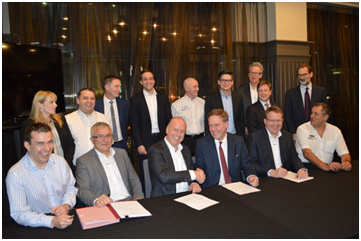
Erwin Hymer Group AG & Co. KG (EHG), the largest manufacturer of caravans and motorhomes, has acquired The Explorer Group Ltd., near Newcastle (England), with more than 400 employees. tkslegal Berlin has advised EHG in the transaction.

Der deutsche Wohnmobilhersteller Hymer übernimmt seinen kanadischen Wettbewerber Roadtrek und tritt damit als erster europäischer Hersteller in den umkämpften amerikanischen Markt ein. Hymer kauft alle Anteile an der Roadtrek Motorhomes und ihrer US-Tochter. Verkäufer ist die Private-Equity-Gesellschaft Industrial Opportunities Partners (IOP). Über den Kaufpreis wurde nichts bekannt....

Having its origin in the USA, crowdfunding has become a real alternative to traditional ways of investment, as it has expanded all around the world. The advantages are obvious: lending decisions are made much more quickly, the terms of diverse offers are more flexible and the default rate is increasing compared to conventional ways of getting a loan. Therefore the USA as well as the UK in Europe have already introduced new regulatory structures, in order to enable the upcoming market to benefit from its novel structure, rather than boxing crowdfunding- as well as crowdlending-platforms and -systems into existing, domestic legal structures.
Together with a number of IBA-colleagues I have contributed to the following text about how crowdfunding finds its way through common ways of assets.
Find out about the risks and new approaches crowdfunding has to face and what will change in the following years. Tell me what you think about it and the possibilities one could use by introducing new regulatory structures in a national or even supranational context.
Best as always
Dr. Thomas Kaiser - Stockmann

Der Berliner Standort der skandinavischen Kanzlei Magnusson unter Leitung von Dr. Thomas Kaiser-Stockmann (55) wird zu TKS Legal: Die Umfirmierung erfolgt zum Juli. 2013 hatte Kaiser-Stockmann für Magnusson in Berlin eröffnet, zuvor hatte er dort den Standort der schwedischen Großkanzlei Mannheimer Swartling aufgebaut.
The Berlin office of Swedish firm Magnusson has split off into an independent boutique, just two years after forming.
The boutique, tkslegal, will be led by Magnusson's Berlin managing partner Thomas Kaiser-Stockmann. He is taking eight members of staff, including a lawyer, trainees and paralegals with him to the new venture.
more »Thomas Kaiser-Stockmann fortsätter på egen hand under namnet tkslegal.
Efter två och ett halvt år som en del av Magnusson International Verein bryter sig Berlinkontoret loss och fortsätter på egna ben. Thomas Kaiser-Stockmann med anställda kommer i fortsättningen bedriva verksamheten under det nya bolagsnamnet tkslegal, skriver byrån i ett pressmeddelande.
Recent Newsflashes
Recent Transactions
Recent projects of tkslegal Berlin include the following:
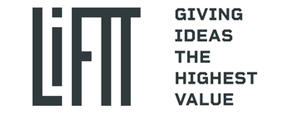

Advice to Amala Investment Partners LLC, Atlanta in the acquisition of the business Amala from it’s parent company Primavera Life GmbH, which is distributing natural cosmetics and essential oils worldwide, such as PRIMAVERA, a market leading brand for organic essential oils. Amala itself is a natural cosmetics brand within the premium luxury skin care market, distributed in exclusive spas and retailers.
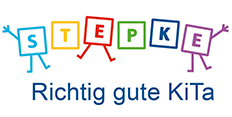
Advice to German Kindergarten services provider Step Kids Education GmbH, running an expanding number of daycare facilities in North Rhine-Westphalia and Brandenburg, on its divestment to north European market leader in educational services, AcadeMedia.

Advice to Erwin Hymer Group, a leading global manufacturer of motorhomes and caravans, on various projects including the acquisition in February 2016 of the Canadian company Roadtrek Motorhomes, Inc. and its US subsidiary with an annual turnover of €86 million, the acquisition of its Nordic distribution company CARAVAN NORD ApS with businesses in Norway, Sweden and Denmark in May 2016 as well as the acquistion of the Explorer Group with 400 employees in Newcastle, UK in February 2017.

Thomas is Chairman of the Board of Assa Abloy Deutschland GmbH, the German subsidiary of the world leader in door opening solutions, listed on the Stockholm Stock Exchange.

Advisor to a Finnish engineering- and IT-service provider in the purchase of TGB GmbH from Siemens Group, transaction volume of approximately €10 million.

For Diaverum, one of the world's leading renal care providers Thomas has advised on the purchase and performance of the German dialysis clinic Alter Teichweg in Hamburg, transaction volume over €30 million.
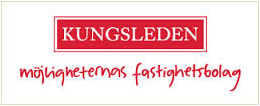
Thomas has advised the Swedish publicly-listed real estate group in the acquisition and development of their German nursing home portfolio amounting to approximately €180 million, including the divestment of various single nursing homes. He also advised in the divestment of a commercial warehouse with a volume of about €8 million.

Thomas has assisted the international private school provider in the acquisition of various private schools in Portugal, Turkey, Austria and other countries.

Advice to German Kindergarten services provider Step Kids Education GmbH on Kindergarten projects, corporate governance questions and general corporate advice, including the establishment of subsidiaries.
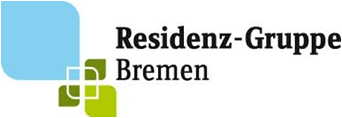
Advice to a German real estate developer in the purchase of 9 nursing homes, transaction volume of €70 million.



